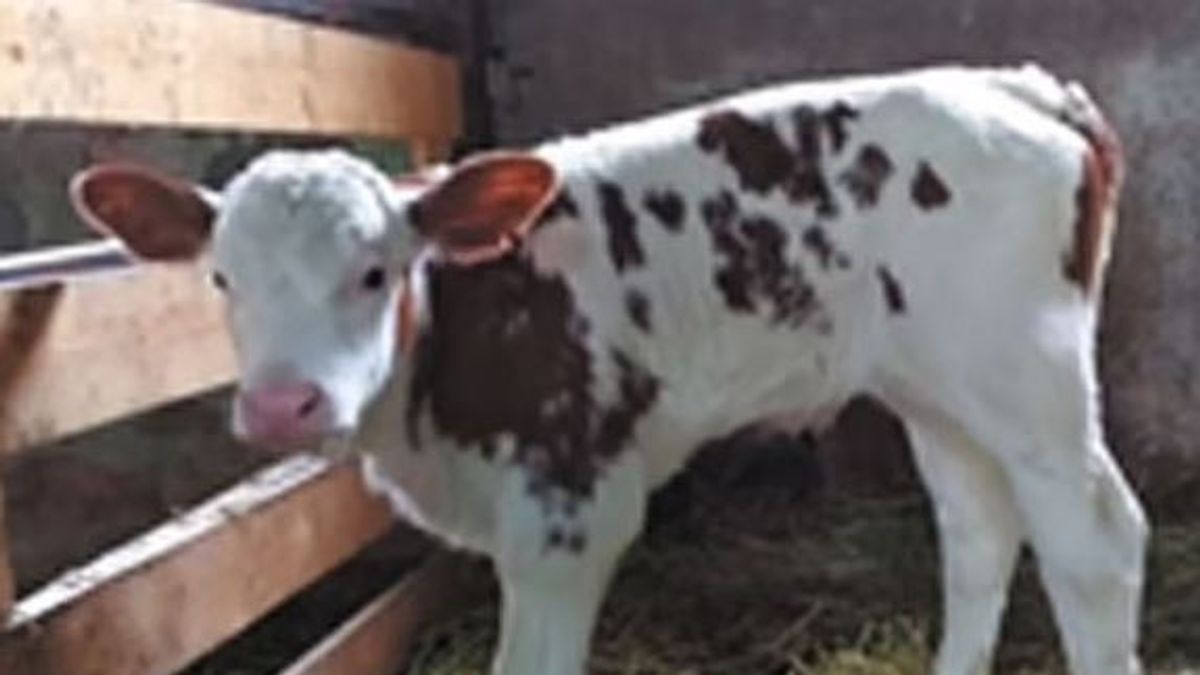JAKARTA - Researchers in Russia announced that they have produced the country's first cloned cow. They are also on the genes in hopes of producing cows with hypoallergenic milk.
The unnamed calf weighed about 63.5 kg., when he was born in April 2020. In his first year, the cow was housed in a separate pen from its mother. Now after 14 months, she weighs almost half a ton and appears healthy with a normal reproductive cycle.
"Since May, she has been in the pasture every day with the other cows of the Institute," said Galina Singina, a researcher at the Ernst Federal Center for Animal Science and lead author of the new study published in the journal Doklady Biochemistry and Biophysics.
"It took some adaptation, but it happened quickly," he said.
According to a report from the Moscow Skoltech Institute of Science and Technology the experiment was a double win for Russia. In addition to the researchers being able to clone the cow, they also managed to change its gene to not produce the protein that causes lactose intolerance in humans.
Singina together with colleagues at the Skoltech Institute and Moscow State University are trying to 'destroy' the gene responsible for beta-lactoglobulin. It is the protein that causes 'lactose malabsorption,' often called lactose intolerance, in humans.
They successfully cloned the calf using somatic cell nuclear transfer (SCNT), with nuclei from donor common cells transferred into eggs with the nuclei removed. The resulting embryo is then implanted into the cow's uterus and brought to term.
While genetically modified mice are a fairly common phenomenon, modifying other species is exponentially more difficult. "Because there are higher costs and difficulties in breeding and breeding," said co-author Petr Sergiev, a professor at the Skoltech Institute.
“The methodology leading to cows with hypoallergenic milk is not only necessary for future agriculture, but also a cool project,” adds Sergiev.
According to the National Institute of Diabetes and Digestive and Kidney Diseases, nearly 70 percent of the world's human population has some form of lactose malabsorption. This makes it difficult for them to digest milk and other dairy products that come from cows.
Cloning a cow is really just a test run. Sergiev's next target is to mate the cow with a few dozen other cows with embryos with edited genes.
The ultimate goal is to develop a breed of cow that naturally produces hypoallergenic milk. “Because it's not a 100% sure-fire process, you have to roll the dice often, and it's quite expensive,” Sergiev says.
The English, Chinese, Japanese, Arabic, and French versions are automatically generated by the AI. So there may still be inaccuracies in translating, please always see Indonesian as our main language. (system supported by DigitalSiber.id)












